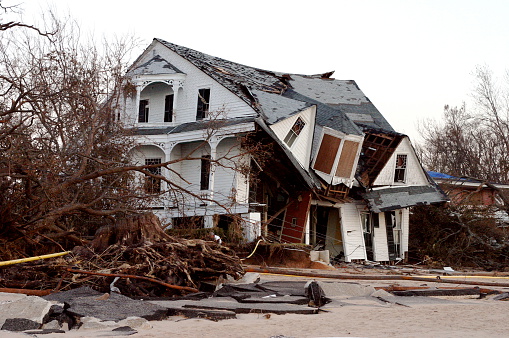Why Boundaries are Biblical
 A Wall or a Boundary?
A Wall or a Boundary?
A boundary is not a wall. The purpose of boundaries is to provide safety and protection, and not complete, forever separation. It is not about fixing, changing, or punishing someone. Boundaries are about taking ownership of your own life. Boundaries are not about paying back, but about finding a way to navigate through life, especially when there is conflict in relationships.
A wall separates and divides. Its purpose is to keep someone out or someone in. A wall controls, but a boundary provides space and grace.
 A wall
A wall
A prime example is the Berlin Wall, built in 1949. Its purpose was to prevent its citizens from traveling to the more prosperous west. Premier Khrushchev gave the East German government permission to stop the flow of emigrants by closing its border for good.
In just two weeks, the East German army, police force and volunteer construction workers had completed a makeshift barbed wire and concrete block wall–the Berlin Wall–that divided one side of the city from the other.
Before the wall, Berliners could move freely from one side to the other. Some traveled for work, and others to visit family. When the wall was built, families were separated and people lost jobs. Between 1949 and 1961, more than 2.6 million East Germans escaped, not to mention hundreds of others who died trying. These people chose freedom even at the cost of their lives. There was no recourse in reaching the other side. One had to have special government permission and that sometimes took months to obtain. Families missed weddings, funerals, and relationships with loved ones because of that wall. Its purpose was to keep the East Germans enslaved in their own country by their own government. This barricade was not a boundary, it was a wall.
A boundary
A boundary is something that indicates or fixes a limit or an extent. Everybody must have boundaries to protect themselves, and sometimes to protect others. We must not lose sight of the purpose of boundaries.
The purpose of boundaries is protection. We need protection from physical danger as well as physical, emotional, and spiritual abuse. Sometimes we need boundaries to protect us from folks who try to divide us, cause friction and conflict, or harass. Sadly, there are times we need boundaries so we can be safe physically, emotionally, or spiritually.
There are instances I set boundaries. When I know a person is volatile and will create an argument or be critical, I steer away from him. It’s a boundary. There’s no reason to put myself in that fray. There is no rule that says I must stay in a situation when someone begins riddling me with sarcasm. There is no rule that says I must answer the phone instead of letting the caller leave a message so I can respond later instead of in the element of surprise. I choose boundaries based on the situations in the past or ongoing tension. Sometimes the boundaries change, and sometimes they stay in place a little longer. People in my life who care about me know about my boundaries and why they are there; sometimes they help enforce my boundaries.
Sometimes I walk away from a conversation or remove myself from a room because I know staying will elicit words from me that I ought not say. Unfollowing someone on social media, scrolling on by, or blocking someone are other examples of boundaries. Blocking someone does not mean you provide them no way to get a message to you; don’t let the person you blocked use that rationale to get past your boundary. I know many people who block folks in different ways because it is the only way to stay healthy. A stop sign is a boundary; so is a yield-right-of-way. It’s there to keep us (and others) safe. That is why I choose the boundaries I do – to be safe and not have regrets later.
 Why boundaries
Why boundaries
Boundaries provide protection and opportunity for healing when an individual has been injured physically or emotionally. When a person has been harassed, belittled, or chastised to the point of causing emotional or physical pain, it is safer for the person to put boundaries in place. This is why restraining orders are necessary for some situations. When a person is abusive to us, there is no reason to keep going back for more abuse. Put a boundary in place so you can have distance and take time to heal. A boundary is not a grudge; it is a limit and a protection. Do not forget that.
A wise person has boundaries in place. How much time and how often should two people who are not married to each other spend alone together? Should an alcoholic frequent a bar, or a compulsive gambler visit a casino? Should a person walk the red light district in a city or stay away? Is it better not to keep company with someone who gossips? Should a tale-bearer be my best friend?
Putting up boundaries does not always mean we don’t trust others, nor does it mean that we can never trust ourselves. It means that we do not trust the Evil One. Scripture tells us those who think they stand should take heed, lest they fall. Putting a boundary in place is “taking heed”. How fewer broken hearts there would be today if only people learned to have boundaries! How much less emotional (and sometimes physical) pain we would suffer if we learned to use boundaries the right way!
Our pastor, speaking of his teenage struggle with pornography, says, “There are some things I cannot let myself do because of my past. Other men might be able to handle it, but I cannot.” So he sets parameters in place (they are called boundaries) to protect himself. There are places he won’t go, things he won’t do, because of his past. Wise man.
When a person violates others (such as children), there are boundaries in place. He should not (and by law sometimes cannot) be alone with children. This not only protects the children, it protects himself. He is foolish if he tries to circumvent those boundaries. A wise person does not infringe on boundaries. And, a person who truly wants to help provide healing does not infringe on boundaries.
Biblical boundaries
Scripture tells us that we are to avoid people who stir up divisions and controversies. In fact, we are not to have anything to do with them if they continue doing so after they have been warned. We are also to stay away from people who are revilers or are living in sexual sin (I. Cor. 5:11.) When we make choices in life because we want to grow spiritually, we are guarding our hearts. The wrong company, the wrong attitudes, and the wrong places keep us from guarding our hearts. Proverbs tell us that we must be diligent in guarding our hearts. This means we must have boundaries in place. It is impossible to walk in the Light of Christ without boundaries.
The right way to have boundaries
Check your motive. Is the boundary for retaliation, or to give space for protection, healing and evaluation? Did you choose this boundary to protect yourself from saying or doing something you should not or going places you must not? Is your boundary to protect you from more harassment or emotional or physical trauma or to punish someone or bring revenge?
Check your agenda. What is your plan? Do others who know you and your situation support the boundaries you have set up? Do you allow yourself to evaluate your situation so you can make progress, or are you putting up a wall? Have you gone for counsel to folks who deal with situations like yours and have a handle on how to advise you? Do your boundaries and the reasons for them align with scripture? Do you have people in place to hold you accountable for the boundaries you have set, and are they willing to walk with you on this journey? (This in itself is a protection for you.)
Check your healing. Are you becoming stronger because of the boundaries you have in place? Are the boundaries giving you space for evaluation and healing? If you’re not finding healing, then reevaluate your boundaries and change them so you are not stymied in your healing. If your boundaries are providing relief and fresh air instead of frustration and pain, then keep them in place until you are advised to change them.
When your motives and heart are right, you will experience release. If your boundaries are biblical, you do not need to question yourself. Healing will come (even if the other person does not change) as you walk in freedom. Let God show you when it is time to change or remove the boundaries you have in place. When your heart is right and you seek Him, He will show you. All you have to do is ask.

Photo credits: Pixabay.com







